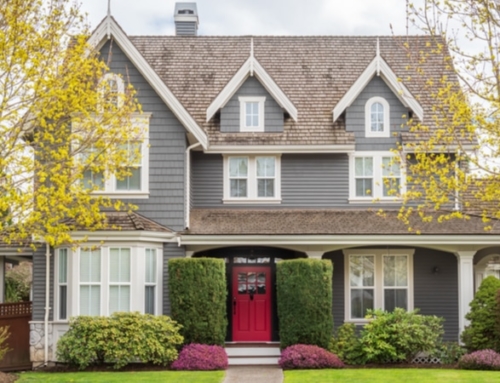The real estate world was already slowing down before the terrorist attacks on September 11.
According to the Commerce Department, housing starts declined nearly 7 percent in August to a seasonally adjusted annual rate of 1.53 million units. Most of the slowdown can be attributed to the multi-family sector, which declined 23 percent. Starts of new single-family homes declined by 2.4 percent to 1.25 million units.
And while the existing home sales market looked strong for the first half of the year, a report from the National Association of Realtors released the week before the attacks noted the housing market has peaked and sales are now slowing.
Unemployment had drifted upwards to 4.5 percent, from its low 3.9 percent level last year. But mortgage rates were low, at about 7 percent for a 30-year fixed rate loan.
But all that has changed, according to David Lereah, NAR’s chief economist and author of the book “The Rules for Growing Rich” (Crown Books, 2000).
“The general sense is that we’re in a sharp recession right now. We probably were already in a recession prior to the attacks on September 11, but now it’s sharper,” Lereah says, adding that the recession will probably last through the end of this year and into 2002.
“In the near term, we will see some big drops in major industries. The airlines and transportation (in general), insurance, securities and the hotel/lodging industries could be crippled,” he noted.
In the wake of the attacks, companies have announced more than 150,000 layoffs, including 30,000 employees from Boeing, 20,000 from United Airlines and AMR, the parent company of American Airlines, and 12,000 from Continental. Midway Airlines announced the day of the attacks that it would lay off 1,700 employees and quietly go out of business.
“That’s got to shake consumer confidence,” says Lereah, who points out that if people don’t feel confident in their job prospects they are unlikely to buy a home.
They are also unlikely to spend money. Which is unfortunate, since spending money can lift an economy out of a recession.
Lereah notes in the days after the attack, the economy came to a virtual standstill.
“We lost billions of dollars. That week alone may give us negative growth for the month. In terms of the housing markets, the immediate reaction was to stop. Buyers didn’t look. Sellers took their homes off the market. We saw this from California to the East Coast,” Lereah recounted. “Then, over the weekend and into this week, what we’re seeing is that business has started picking up. It’s slower than before, but it has picked up.”
Lereah says that the NAR is working feverishly to recrunch it’s numbers and projections for the end of 2001 and into 2002.
“We’re probably looking at a drop in home sales for the September, October, and November time period. But it’s anyone’s guess. Because we’re in a war,” he said.
Mortgage rates will be crucial. Many home buyers look at the Federal Funds rate and expect long-term rates to drop the way short-term interest rates have declined. But that isn’t going to happen, though economists say Alan Greenspan will undoubtedly have to lower interest rates again, perhaps as much as another half a percentage point.
But propping up long-term rates is a peculiar combination of excessive government spending and an uncertain future for energy.
“The government is probably going to spend $100 billion in a relatively short period of time. That, combined with uncertainty about the energy markets can be inflationary. I don’t think we’ll see high inflation, and there isn’t any inflation out there right now, but if investors are nervous about the potential for inflation, they will keep long-term interest rates propped up,” he explained.
Still, Lereah says interest rates are fluctuating daily between 6.6 and 7 percent for a 30-year fixed rate loan. The lowest interest rate in 30 years for a 30-year fixed rate loan is 6.6 percent, which we haven’t seen since 1993, Lereah said. He says there is a good chance we’ll fall below that level in the next few months.
The real problem is that there is no glimmer of hope in the economy right now.
“This is the most uncertain economic or political environment in our generation or our children’s generation. But now, America has been attacked domestically. The last time that happened it was nearly 60 years ago in Pearl Harbor and then we knew who our enemy was. And Pearl Harbor wasn’t on the U.S. Mainland,” Lereah explained.
“The uncertainty is key for the consumer because they don’t know what to do. Confidence is down, and they’re not spending enough money on the big-ticket items like cars and houses,” he added.
The two factors that can’t be determined today are how long the war will last, and what kind of economic boost the country will see from the surge of patriotism sweeping from coast to coast.
Flags are a start. Selling war bonds would be better, Lereah says. “But if the war effort lasts longer than 6 months, or if we get sporadic terrorist attacks on the mainland, it won’t be good for the economy.”
Jan. 14, 2002.






Leave A Comment